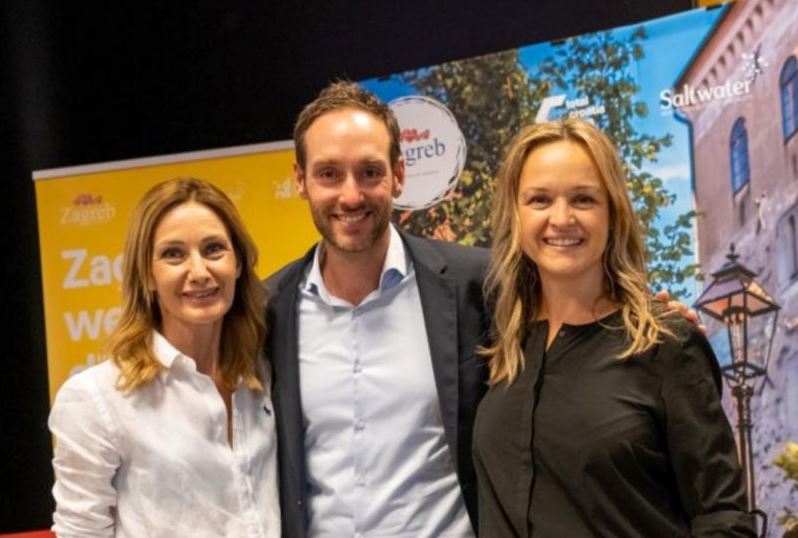March 29, 2022 - A lot has happened in Croatia over the last 2 years in the Croatian digital nomad story. Ahead of the new Work. Place. Culture. conference in Dubrovnik, TCN catches up with one of the instigators of change - Split-based entrepreneur, Jan de Jong.
A busy season for Croatia's digital nomad story is about to begin. Last year's highlights included the introduction of the digital nomad permit on January 1, 2021, and destinations such as Zagreb and Dubrovnik attracted global interest with award-winning events such as Zagreb Digital Nomad Week and Dubrovnik Nomads-in-Residence project.
Both Zagreb and Dubrovnik will continue their push to position themselves in the market in 2022, with Zagreb Digital Nomad Week 2022 set to take place in June, and a new conference before that in Dubrovnik, as previously reported on TCN - Work. Place. Culture.
No self-respecting nomad conference would be complete without the participation of the nation's favourite Dutchman, Jan de Jong, whose pioneering efforts in instigating the nomad permit, as well as the co-founding of the Digital Nomad Association Croatia have been key to Croatia's rapid rise as a popular nomad destination. In the first of a series of interviews ahead of the conference, TCN caught up with Jan to reflect on a crazy couple of years, as well as looking forward to what is coming next.
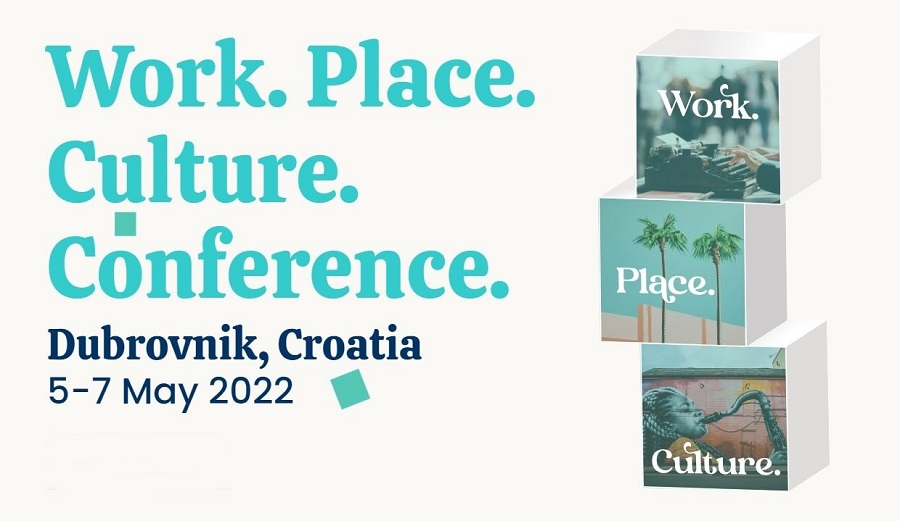
1. Two years ago, the term 'digital nomad' was almost unheard of in Croatia, and today Croatia is one of the most cited countries in Europe on the topic. As the initiator of the Croatian digital nomad permit (only the second in Europe) and co-founder of the Digital Nomad Association Croatia, you have played a significant role in that. Reflect on that journey briefly for us.
Over the past 15 years that I have lived in Croatia, I have started several businesses and initiatives. I have to admit that even building a big business doesn’t give me the same fulfillment and satisfaction as I am getting from what we are doing by putting Croatia on the world map as a digital nomad hotspot. It’s a joy to be surrounded by amazing people with different backgrounds who all want to turn Croatia into their temporary home. I strongly believe that our efforts can help turn Croatia into a more sustainable, year-round destination and that the young and smart remote work professionals can leave a positive impact on our youngest generation in Croatia.
(With DNA Croatia co-founders, Karmela Tancabel and Tanja Polegubic)
2. While the visa/permit was a headline attraction, the reality is that few nomads (by definition) stay in the same place for a year, and the bigger challenge is to showcase Croatia as an attractive remote work destination for 1-6 months. You co-founded the world's first Digital Nomad Association, DNA Croatia. Tell us about that, and about the excellent work it has performed in recent months connecting initiatives and building community.
Together with my co-founders of DNA Croatia, Tanja & Karmela, we are making strong efforts daily to unite and serve digital nomads in Croatia. However, truth to be told, we can’t make the impact we want to make by ourselves. That’s why we were very excited to bring Michael Freer on board as the director of DNA Croatia last November. With Michael's experience and full-time dedication, we have been able to demonstrate what DNA Croatia is capable of doing. Michael spearheaded several national and international campaigns, including community-building initiatives with a team of 8 volunteers in 8 different cities/towns across Croatia and organizing and participating in conferences in London and The Hague – promoting Croatia abroad as a digital nomad welcoming destination. I am also very proud of the support we are offering to Ukrainian remote work professionals who wish to apply for the digital nomad permit. All in all, more and more stakeholders find their way to DNA Croatia, which means that we are slowly but surely becoming the kind of NGO we want to be, which is to be the “go-to” organization for the digital nomad eco-system in Croatia. Many more developments are about to take place, including the opening up our DNA Croatia contact center. We will make a phone number available for when digital nomads have any questions during their stay in Croatia. Soon more about this.
3. One of the comments I hear a lot from visiting nomads is the level of public-private partnership in Croatia, something that hardly exists elsewhere. You had to negotiate with 5 ministries for the permit, for example, the cities of Zagreb and Dubrovnik have been very supportive of nomad events such as Zagreb Digital Nomad Week and Dubrovnik Nomads-in-Residence, and DNA Croatia recently agreed a partnership with the Croatian National Tourist Board. Tell us about the importance of this in moving the Croatian story forward.
The first step is always to acknowledge either the problem, challenge and/or opportunity. If we as a country, region, city, but also as citizens - acknowledge that depending on strong seasonal tourism is a problem and that bringing digital nomads to Croatia – year-round, is an opportunity – only then we can get everybody on board in pursuing our goals. And none of the stakeholders can do this by themselves without support from the other stakeholders. If Croatia wants to become a top destination globally for remote work professionals, we will need to start collaboration between the government, municipalities, national, regional and local tourist boards, private sector – and I hope that DNA Croatia can have a coordinating role in all of this.
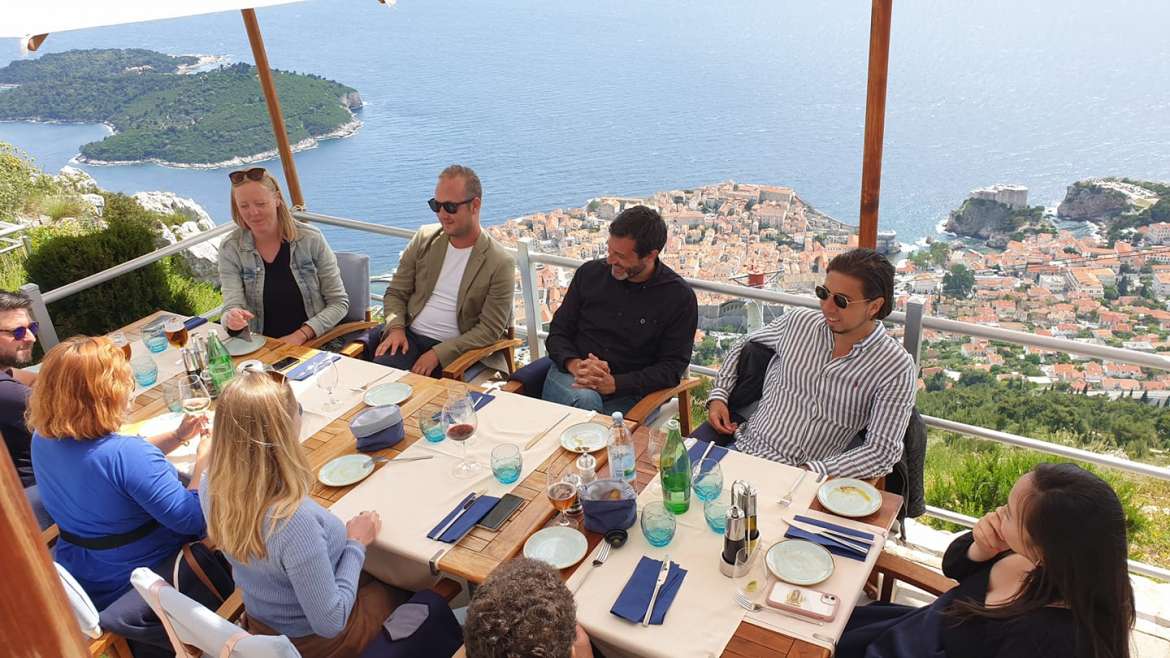
4. This is Croatia, and even though things are moving very quickly, it is impossible to please everyone. The permit is not perfect (although it was named the best in the world by one nomad portal), and several permit holders would like to extend their stay beyond the one-year maximum. How likely is that to happen, and what changes to the permit are being worked on?
Yes, there are several changes to the permit we would like to see in the future, including the possibility to renew the permit after 12 months and some changes to tax laws. Right now, digital nomads are exempt from paying income tax on the income they have as a digital nomad, however – officially taxes on other income, such as dividend, crypto gains, rental income, etc. are not exempt. Even though the Croatian tax authorities will most likely not go after such taxes, we would like to see this changed in the law.
The ministries are informed about our wish to see some of those additional changes, however – unfortunately I don’t expect to see any of such changes happen this year, simply because it is not high enough on the priority list.
5. You are heading once more to Dubrovnik on May 5-7 for the Work. Place. Culture. conference. The city has been at the forefront of Croatia's digital nomad revolution, hosting the first-ever digital nomad conference in Croatia, as well as the award-winning Dubrovnik Nomads-in-Residence program. Tell us a little about Dubrovnik's journey so far.
Dubrovnik was perhaps more than other cities suffering from mass tourism during the season. They were the first to acknowledge this problem and to acknowledge the opportunities that can come from hosting digital nomads year-round. And once you have a city and tourist board that understands this, you can accomplish anything you want, which is exactly what Dubrovnik is doing right now – by demonstrating real leadership when it comes to turning the city into a digital nomad welcoming destination. As a founding member of DNA Croatia, I can only say that I like what I am seeing in Dubrovnik and I hope that this serves as an example and inspiration to other cities and regions.
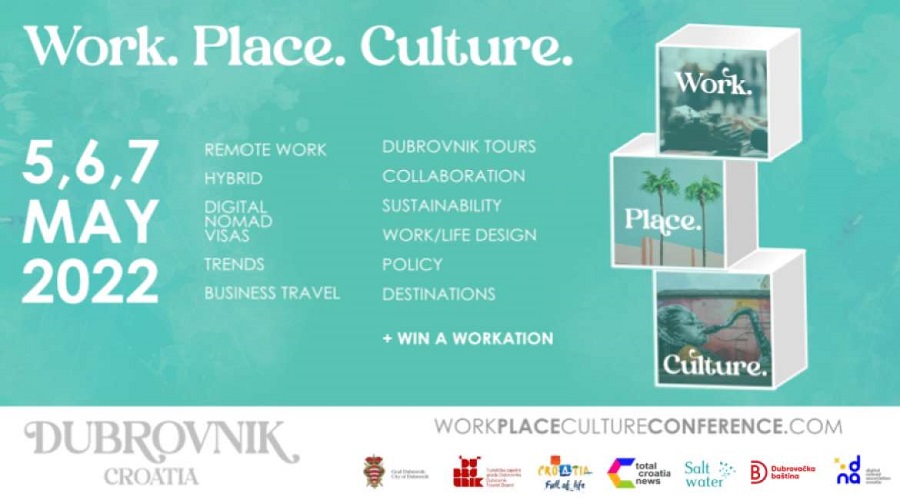
6. Who is the conference aimed at, why should people come, and what will be your role?
The targeted audience of this conference is not just digital nomads, but is actually more focused on the remote work professionals in general. I think there is also a lot to learn here for employers, because the way people live and work has significantly changed over the past few years. Before, we spoke a lot about work/life balance. Nowadays you more often hear about work/life integration. This is a new way of working, for both employees, freelancers and for employers. In my opinion, as a remote work professional and employer myself – I believe that the content of this conference couldn’t be more relevant.
7. Where would you like to see Croatia in 5 years in the remote workspace, and how do we get there?
I hope that in 5 years from now, when remote work professionals speak about “working from anywhere” – that they speak and think about Croatia as the place to be. Croatia should be known for being an affordable, authentic lifestyle destination – with all required infrastructure available for working remotely, including a thriving community.
How do we get there? Content, content, content!
- Content in terms of authentic experiences and things to do, 12 months a year.
- Content in terms of conferences aimed at digital nomads worldwide.
- Content in terms of user-generated blogs, vlogs, posts, stories, tweets – and local, regional and national promoted content
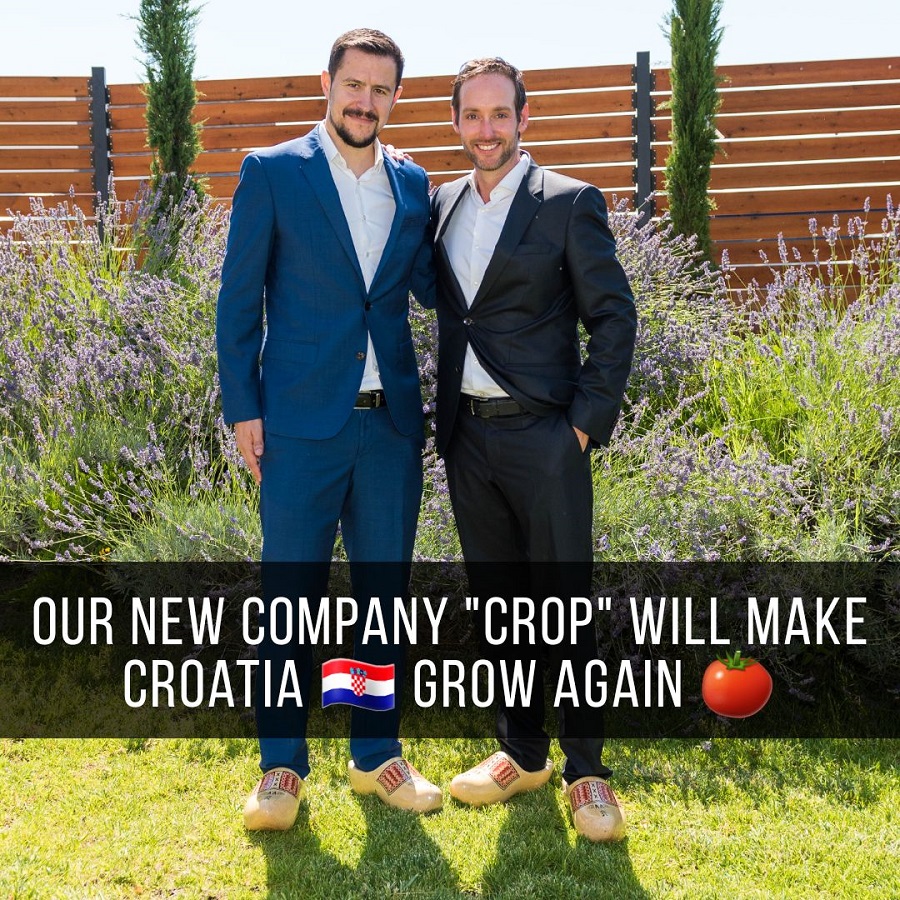
8. Although you are primarily known as the Croatian Nomad Visa Guy, this is actually only a small part of what you do. One of your current missions is to help revitalise Croatia's agriculture. Explain what you are trying to achieve, how it is going, and where people can follow the story.
Being a Dutch entrepreneur in Croatia, I wanted to be the bridge between the Netherlands and Croatia – in a way that I would like to bring more of the Dutch agriculture technology to my new home country. In the past, Croatia used to produce enough food to feed an entire region. Today, Croatia is a food importing nation. That is why, together with my friend Jerko Trogrlic, I co-founded the company CROP. It is our mission to make sure that Croatia becomes less dependent on importing food, and ultimately to help turn Croatia into a food exporting nation again, like it used to be.
Currently we are working hard, together with our Dutch partners, on developing the first project, which is a 6-hectare greenhouse for growing cherry tomatoes. With a strong focus on sustainability, we plan on using geothermal heat for heating our greenhouse and solar energy for our grow lights. An estimated investment of 18 - 20 million EURO, which would create some 60 new full-time jobs in an area that desperately needs new jobs.
You can follow Jan de Jong on LinkedIn.
For more information about Work. Place. Culture. in Dubrovnik from May 5-7, visit the official website.
For more news and features about digital nomads in Croatia, follow the dedicated TCN section.


